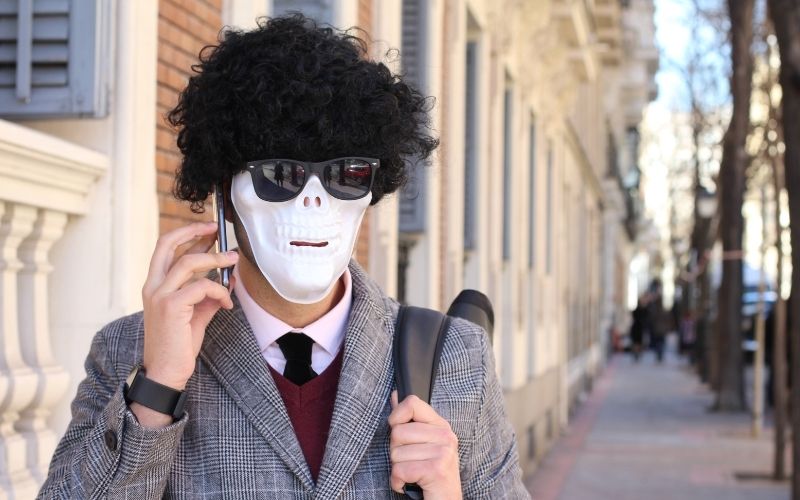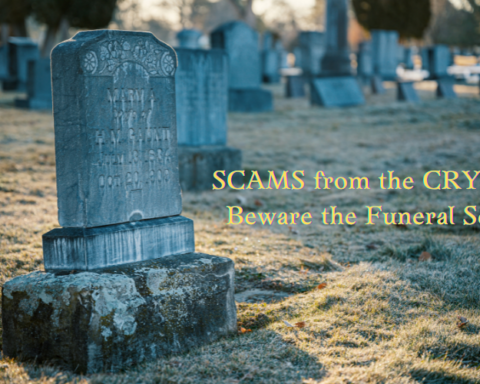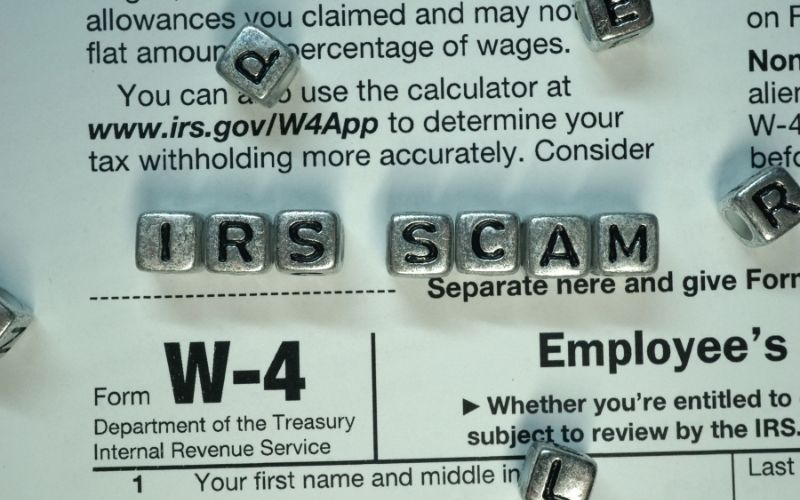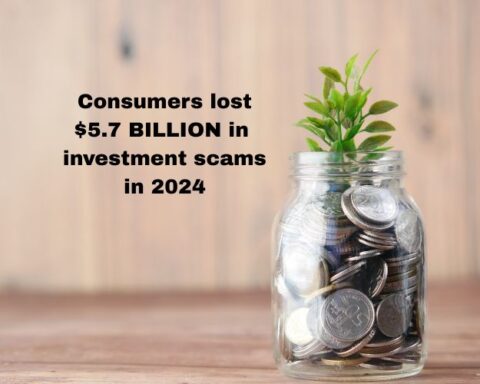by Elina Sivak May 31, 2022 | Original Post
Scamming old people is a growing problem that occurs mainly under the radar, mostly, because many victims suffer from cognitive impairment and are not aware of what is happening.
According to statistics, about five million seniors in the US become victims to elder fraud each year. From home repair scams and IRS scams to investment frauds, there is a wide range of cons targeting older people. More alerts are found on consumer review websites like PissedConsumer.com, where elderly people report being scammed. Hopefully, you can help change that and become your parents’ best advocates.
The retirement savings make seniors one of the wealthiest segments of the population in the United States. In addition to the fact that they are also more vulnerable than other age groups, one can easily understand how easy it is to exploit these people in financial issues. Besides, senior citizens are usually embarrassed to admit to their family members that they have been abused. That is another reason why they become easy targets to those interested in putting old people’s scams into action.
Low-income elder people are also targeted and it is not always a stranger that commits these scams. An overwhelming 90% of all reported elder abuse is perpetrated by the senior person’s own family members (i.e. children, nieces and nephews, grandchildren, etc.).
Most Common Types of Scams Against Seniors
Telemarketing/Phone Fraud
Imposters rely on the fact that seniors feel more and more comfortable making purchases over the phone (including their mobile phone). Given that everything is done without face-to-face interaction, setting up elderly phone scams is made easy. Also, when the scammers manage to make a successful deal with a senior, they pass on the buyer’s name to other scammers that will most likely try to deceive the same person.
Another phone scam is the “Grandparent” fraud, where the imposters exploit the elderly person using their natural feelings of love and care towards grandchildren. The victim receives a call from a supposed grandchild. The unsuspecting grandparent tries to match the voice on the telephone with one of their grandchildren. Once the older person believes they are indeed talking to a grandchild, things are easy. The scammer asks for money to pay for an unexpected financial issue (i.e. car repair) while “begging” the grandparent not to tell anything to the parents.
Other four of the most characteristic senior phone scams are:
● The fake accident fraud – The scammer calls the victim and tells them that their child or another relative has had a supposed accident, is hospitalized, and is in urgent need of money. The scammers get the elderly person to send or to wire money on that pretext.● The “Let’s split the money” fraud – The imposter tells the older person that they have a large sum of money in their hands; money they are willing to split with the senior if the elderly withdraw some money from their bank account and make a so-called good-faith payment. This is a pigeon drop scam, and often involves a second scammer posing as a banker or a lawyer.● The “IRS is suing you” scam – The con artist calls and poses as an IRS employee (they usually use phone spoofing to make the number come up as IRS) telling the senior that they are being suited by the IRS. To get out of this situation, the elderly person needs to submit payment either by prepaid debit card or wire. Most of the time, the con artist will also have the victim’s last 4 digits of their Social Security number (through other types of scams), which will lend them an additional air of legitimacy.● Charity fraud – Such telephone scams on elderly are usually conducted after natural disasters. Victims are reached out by scammers that either create their own charity name or pose as agents of a legitimate popular charity to make donations to fake charities. Imposters may set up a fake website that looks very similar to that of an operating charity or even approach their victims at their front door or on the street.
Health-Related Fraud
Medicare Scam
The perpetrator contacts the elder person posing as a Medicare representative. The goal is to convince the senior citizen to disclose their personal information. Scammers may also reach out to the elderly person to provide spurious health services at temporary mobile clinics.
Again, the ulterior motive is to steal the elderly’s personal information, to bill Medicare, and then to take the money for themselves. To do so, they employ different types of fraud. For example, they call the victim and ask them if they suffer from chronic pain. Then, they offer an “arthritis kit” that promises to relieve victims of their pains.
The Discount Prescription Plan
The con artist offers seniors prescription drugs at a significant discount (up to 50% off), provided the elderly pay a membership fee to join a discount club. To do so, they usually need to give their credit card number. These scams usually operate on the internet and are growing in popularity. Most of the time, the medicine is a generic herbal replacement, which will not help the elderly’s medical condition.
Lottery or Sweepstakes Scams on Elderly
Those that try sweepstakes scams by phone or email inform their victims that they have won sweepstakes (or lottery) of some kind and that they need to send money to have their supposed prize unlocked. In doing so, seniors receive an authentic-looking check with notification that they are winners of a foreign country lottery.
The senior deposits that check-in their bank account but a few days later, the fake check is rejected. During those few days, con artists collect the money for supposed taxes or fees. When the check bounces, the victim sees that the supposed prize money is taken from their account.
There’s also another version where the imposter asks the victim to buy inexpensive magazine subscriptions or trinkets – which they receive – so that they can have their name entered in the contest.
Funeral/Cemetery Fraud
The main tactic scammers follow to conduct fraud against seniors is to pretend to be a grieving friend or a business partner (of some sort) of a deceased elderly person. To make things more believable, the trickster may attend the funeral service or even read an obituary. The goal is to take advantage of the vulnerable widower or the widow (or even other relatives) and to ask them to pay a (fake) outstanding debt the deceased person had with them.
Homeowners & Reverse Mortgage Fraud
Senior citizens usually own their homes, which is exactly what triggers scammers of this particular type of fraud. They send the victim a personalized letter, made to look official, on behalf of a reputed authority, such as the Country Assessor’s Office, where they mention the property’s assessed value. Then, they ask the homeowner whether he/she would like to have his/her property’s value rearranged (as a means to relieve themselves of the hefty taxes related to it), always for a fee. As for the older person that has recently unlocked equity in their property, scammers offer a reverse mortgage.
How to Report the Situation If Scammed
1. File a report with the FTC – The Federal Trade Commission will help you report and recover from identity theft. Once you report the ID theft, you will be provided with an ID theft affidavit that you can print and bring to the nearest police station to file the crime with them too.2. Contact Medicare’s fraud office – If your medical identity is stolen, contact Medicare and report the crime.3. File a report with the IRS – For the tax identity theft, contact either your state’s Department of Taxation or Revenue, or the Internal Revenue Service.4. Contact the National Adult Protective Services Association– NAPSA is a non-profit organization that helps elder and vulnerable adults that have been victims of abuse. To find the contact information of your local Adult Protective Services, you may use their Eldercare Locator feature or call a government-sponsored national recourse line also called the Eldercare Locator at 1-800-677-1116.5. Report the ID theft to your state’s Long-Term Care Ombudsman (LTCOP) – If the ID theft was a result of a stay in a long-term care facility or a nursing home, then use this map (http://theconsumervoice.org/get_help) to find your state’s LTCOP. 6. Seek help from State Consumer Protection Offices – Reach out to your state’s Consumer Protection Office and/or Attorney General and file a report.7. Warn others by posting a review – by reporting online via social channels or websites like Pissed Consumer, Yelp, and BBB, you can help others avoid the same scam.
Although scamming old people seems to be reaching epidemic proportions, there is still a lot we can do to protect the elderly members of the family. We know that most scammers aim at lonely and vulnerable senior citizens who have nobody to talk to. We also know that older people that get scammed are very afraid or even embarrassed to talk about it. So, it is important to become their voice if they can’t speak for themselves, and to make them feel they are not alone in this or any other phase in life.












